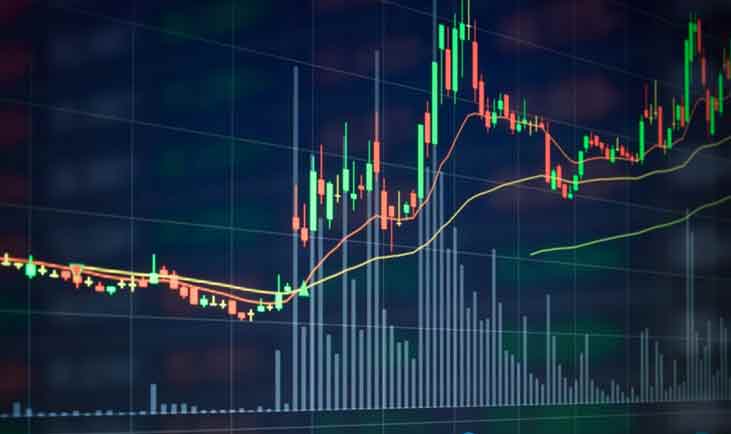
The global forex market is the largest and most actively traded market in the world. While searching for the “best” forex firm, we've gathered fundamental data and company reviews on this site, both for beginners and those looking for a new company.

Data on the website include investment products and depth (currencies, CFDs, indices, commodities, cryptocurrencies, etc.), trading platforms (web-based, mobile app, charting platforms, etc.), customer support, training and reliability information on behalf of.

You can compare companies according to the criteria that suit you, open an account quickly and start trading in the forex markets right away. Moreover, everything you will find on this site is free!
Best Forex Companies 2025
Let us be clear – opening an account and making a deposit at a Forex broker is something you should take seriously. You are putting some of your capital in the hands of a company, and in return, you should expect them to provide the tools you need. The more money you deposit as a percentage of your net liquid worth, the more careful you need to be. You should also expect that your deposit (and profits) will be kept in safe custody, and you want to know that that you will be able to make a speedy withdrawal.
Your first concern in reviewing a broker should be the integrity of the firm, the soundness of their business practices, and the quality of the regulatory framework which they work under. After all, if you find a broker is not to your liking, there is little damage done if you are able to close your account.
Your first step in seeking the best Forex brokers is to restrict your search to include only the brokers you feel comfortable trusting as a custodian of your money. Ideally, you should only be looking at regulated Forex brokers, and it is advisable strongly consider the stronger financial centers such as brokers regulated in the U.S.A., brokers regulated in the U.K., or brokers regulated in Cyprus. Consider also whether you would be in a stronger position choosing a Forex broker regulated in the same country in which you live: in the event of any dispute with them, you could be better placed to pursue it more effectively. Alternatively, you could focus on the offshore center which has the strongest relations with your country of residence – for example if you live in the European Union, you might find it easiest to choose a Forex broker in Cyprus, another E.U. member state. Don’t forget that some regulators, mostly the stronger ones, may be prepared to pay back all or part of your deposit if one of their brokers go out of business. It is not wise to rely upon the promise of “segregated accounts” to protect your funds from broker bankruptcy.
Your second priority should be determining whether a broker gives value for money to its customers in return for the services it provides. This is measured mostly by the cost of trading, in spreads, commissions, overnight swap rates and other incidental fees. Of course, generally, the more money you deposit, the more you can expect from your broker in return.
After dealing with bread and butter issues, my Forex broker reviews assess how each broker measures up in terms of the range of assets offered for trading, maximum leverage offered to traders, spread and commission models available (e.g. fixed vs. floating), and choice of trading platforms. Finally, we might consider the “bells and whistles” which are a relatively unimportant part of any broker’s offering, such as educational materials and bonuses and promotions.
Below is a list of the 25 factors that are worth using to assess any Forex broker once you are satisfied that it can hold safe custody of your deposit and is adequately regulated.
A good Forex broker should offer consistently good liquidity and smooth execution, which are the mainstays of smooth trading conditions. This is because trading is easiest in such conditions, and loss causing events such as slippage less likely. Liquidity can of course shorten at certain times of the day, making spreads wider at certain time. No broker can be expected to provide narrow spreads just before a major news announcement. Yet generally, entering and exiting trades should be easy, without any glitches or platform freezes.
Probably the most important factor here is, will you be able to trade everything you want? If you are only interested in the major Forex currency pairs, that will be easy, but if you really want to trade individual stocks and shares, or say, the less common commodity offerings, you will find that not all brokers offer them, although most offer some of them wrapped as CFDs. There is nothing wrong with being diversified, but you should keep in mind that the cost of trading such relative rarities tends to be higher than the cost of trading Forex. Also, you might consider opening accounts with two different brokers, as you could find that there is not one perfect solution but there might be two.
For various reasons, some Forex / CFD brokers will not allow residents or citizens of certain countries (most often, the U.S.A.) to open accounts. This means that depending upon where you live and what nationality you have, you may not be able to access certain brokers.
A good Forex broker you also must be affordable. This means that you can afford to meet their minimum deposit, although there are many brokers here requiring a minimum deposit of only $10, and in some cases, imposing no minimum deposit at all.
Almost every Forex broker offers their own mobile trading app. This can be useful if you intend to ever trade using a handheld device. Most traders probably do find themselves checking up on trades while they away from their desks, so you might want to download a broker’s mobile trading app and see how you like using it with a demo account, when you are in the process of deciding which broker to open a real live money account with.
Deposits and withdrawals are usually nothing to worry about, except in a few rare cases. A broker that will not speedily send you funds which you have requested and are in your account, raises a big red flag, and is to be avoided at all costs. Deposits are made speedily almost everywhere, for obvious reasons. Occasionally, you may wish to use a payment method which a broker will not accept, for some reason. You will have to find another payment method or another broker which accepts your preferred payment method in such a case.
Examine the reputations of the brokers making your shortlist, one by one. A quick google search can determine if they have ever been fined by their regulator for a breach of rules, and which rules were breached. Are they a public company? Does their financial position look healthy? Have they been in business a long time? There are plenty of newer Forex brokers which are perfectly sound but using longevity can be an effective rule of thumb.
Examine the reputations of the brokers making your shortlist, one by one. A quick google search can determine if they have ever been fined by their regulator for a breach of rules, and which rules were breached. Are they a public company? Does their financial position look healthy? Have they been in business a long time? There are plenty of newer Forex brokers which are perfectly sound but using longevity can be an effective rule of thumb.
This is a relatively minor consideration because almost all retail Forex / CFD traders will never need to use customer support. However, in the case of a problem or emergency, you will want to know that at least a competent customer support team is there ready and able to help you. It could be a good idea to give them a call if you can find any question with your demo account, just to test out how good your potential broker is in this department.
Most Forex / CFD brokers offer free trading education. This really is not important, because the internet is full of free Forex education anyway, so you do not need to worry about getting it from your broker. Worry about their trading fees, execution, reliability, and regulation instead. Many brokers offer very low-quality educational materials as a sales gimmick.
Almost every Forex / CFD broker makes it as easy as they possibly can to sign up and open an account, of course, as it makes good business sense to do so. With many brokers, you will be able to get an account registered and opened, ready to receive your deposit, within a day of submitting your online account-opening form. To some extent, this will depend upon which regulatory regime the broker is subject to, and which country you, the client, is resident in.
Check the minimum deposit each potential broker requires from you to open your account. This can range from $10 at the low end to as much as $10,000, although fortunately most brokers accept clients willing to deposit as little as $100 or perhaps $200.
Deciding how much money you should deposit with a Forex broker is also important. Not only should you only deposit funds which you can afford to lose, it is also worth considering whether all the funds you can afford to lose should be in the custody of only one broker. You could consider splitting the amount in half and opening accounts with two different brokers, for example, as an effective way to limit your overall risk as a trader. There can also be other valid reasons to do this, for example, you might want to trade stocks with broker A and Forex with broker B because their respective offerings in each differ in quality.
Keep in mind that generally, the more you are prepared to deposit, the better deal you are going to get. Many brokers offer a lower cost of trading (e.g., cheaper spreads, etc.) to anyone depositing more than say $500, $1,000, or $10,000. You should never deposit more than you can afford to lose with a Forex broker, but it is another factor worth considering.
You should also consider the question of how much money you need to deposit to trade Forex that will withstand your worst losing streak at the minimum trade size.
Some brokers offer better conditions for longer-term traders than short-term traders, or vice versa. This is because short-term traders will pay nearly all their trading costs in spreads, while longer-term traders will likely pay more in overnight financing fees (also known as swaps). If you know for how long you will usually be aiming to hold a trade open for, you will be better able to determine whether a Forex broker is more suitable for you.
Forex brokers typically advertise themselves as one of the following: ECN brokers, STP brokers, or market-makers. Some brokers claim they are a hybrid of two of these. Some traders are very keen to deposit with ECN brokers because they think the cost of trading will be less or that this model makes the broker more honest somehow. The truth is more complicated: each execution method has both potential advantages and disadvantages. Another problem is that there seem to be quite a few brokers claiming to be ECN brokers, but it is hard to believe that they really all are true ECN brokers when viewing their conditions of trading. Some brokers offer all the major options in different account types. The bottom line is, it is worthwhile doing some research on the different models and seeing whether one really makes sense for you, or whether in practice there will be little difference.
Most Forex brokers are not just selling the ability to trade Forex but are also offering trading in CFDs covering commodities and major equity indices, and sometimes also individual stocks and shares. There are even a few brokers offering more unusual products, such as Forex options.
Traditionally, brokers were either ECN or market-making brokers. Today, many brokers offer a choice between the two as different account types. Many brokers also tend to offer a wide range of different account options, which offer better deals depending upon how much you want to trade, and what trading style you tend to utilize. Therefore, it is worth reading the various options carefully and considering what best meets your requirements as a trader.
































